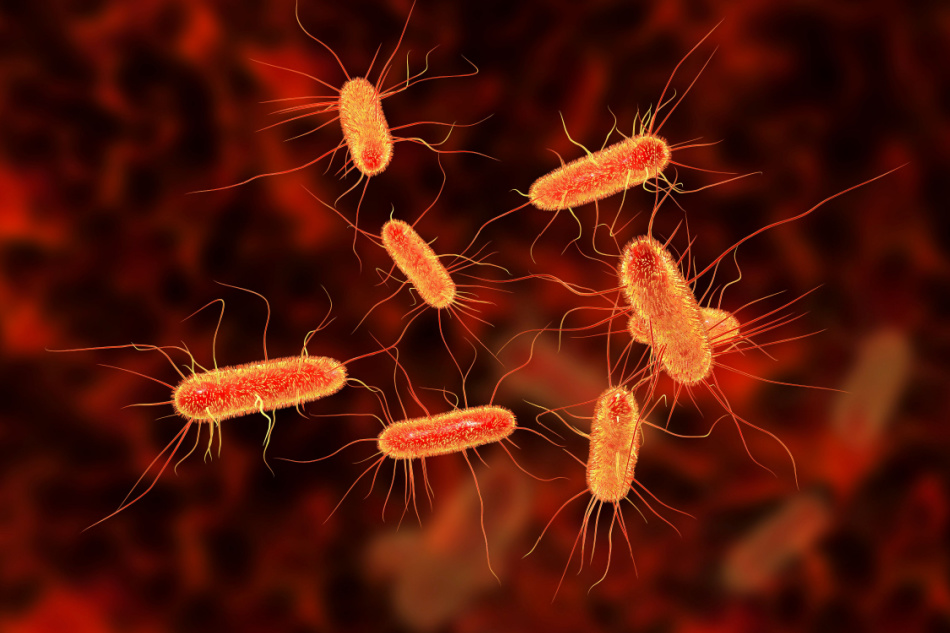Cancer tumors are very effective at avoiding the immune system, making intervention difficult. A common gut bacterium has been genetically altered to seek out and destroy cancer tumors from within, as shown in a new study.
Why are tumors so hard to treat?
Tumors can thrive by escaping the body’s immunological responses in a variety of ways. The first is to keep immune cells from becoming involved in chemotaxis, which is the mechanism by which immune cells detect a tumor and travel toward it to kill it. Chemotaxis is fueled by cytokines, which are small proteins that signal other immune cells. Chemokines are cytokines that cause immune cells to migrate.
The chemokine CXCL16 attracts T cells, which are white blood cells that help fight infection and cancer. CXCL16 and its receptor, CXCR6, have been demonstrated to improve survival rates in colon and lung cancer patients. Recent research suggests that CXCL16 and CXCR6 work synergistically to create anti-tumor immunity. Nevertheless, no means of delivering CXCL16 into the tumor’s cellular milieu has been discovered.
Scientists have known for some time that certain bacteria species may live inside tumors. A new study by Columbia University researchers combined that information with genetic engineering to develop a method of targeting and eliminating tumors by mobilizing the body’s own immune cells.
“Through decades of research that’s allowed us to understand how an immune response develops, [we’re] developing therapeutics that specifically target each one of those discrete steps,” said Nicholas Arpais, Ph.D., senior author of the study.
Introducing: Genetically modified E. Coli
The introduction of a genetically modified, probiotic strain of Escherichia coli (E. coli), a bacterium ubiquitous in the human gut, was critical to the study. The E. coli was modified to include a synchronized lysis circuit, which takes advantage of some bacteria’s natural tendency to enter illness locations in the body.
As bacteria enter a tumor, the circuit is activated, causing them to disassemble, or lyse. Lysis allows for the recurrent administration of chemokines, which recruit T cells and boost anti-tumor immunity.
In 2019, the same researchers created a type of non-pathogenic bacteria to penetrate tumors in mice and fight them from within. They discovered that the modified bacteria removed the tumors and reduced tumor metastasis.
In the current investigation, the researchers paired CXCL16 expression with another chemokine, CCL20, in addition to employing an engineered bacterium. CCL20 attracts lymphocytes, which are a type of white blood cell, as well as dendritic cells, which are powerful cells that initiate the adaptive immune response by presenting antigens to other immune cells.
The researchers discovered that combining the two chemokines increased their therapeutic efficacy, increasing the immune response to the tumor in a previously unknown way.
“By coupling this with chemokines that drive the infiltration and activation of dendritic cells, a critical innate immune cell type, detection of tumor antigens is increased,” Arpaia said.
The results
Their trials with mice revealed that the modified bacterium elicits a significant immune response against cancers that have been directly injected with the bacteria as well as tumors that have not been injected. Notably, the germs had no effect on healthy tissue.
“What we see is that the bacteria will only colonize the tumor environment, and they only reach a sufficient level of quorum to induce lysis within the tumor, so we can’t detect bacteria in other healthy organs,” Arpaia said.
The researchers are still working on perfecting their technique in order to use it in human clinical trials, but so far, the results are promising.
Source study: Science Advances— Chemokines expressed by engineered bacteria recruit and orchestrate antitumor immunity












